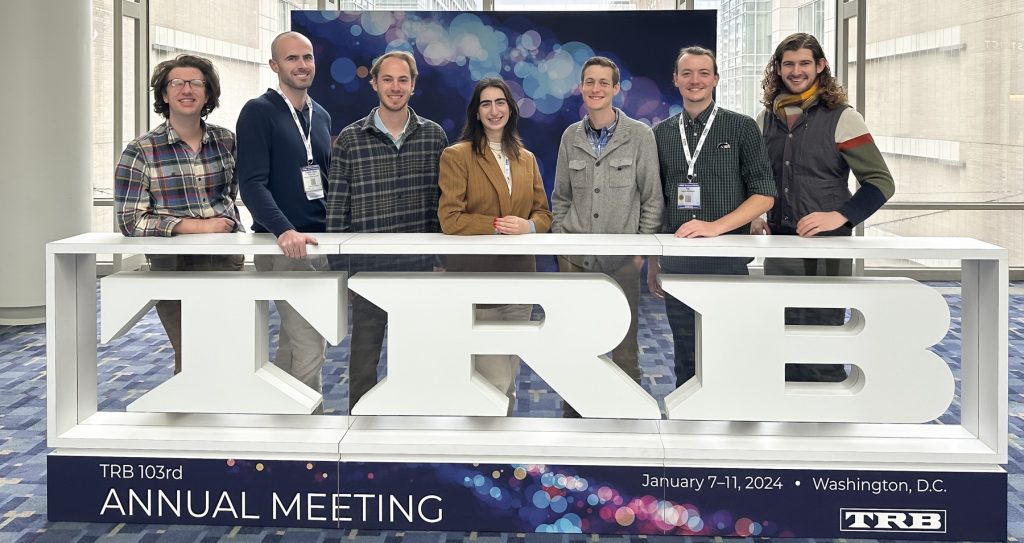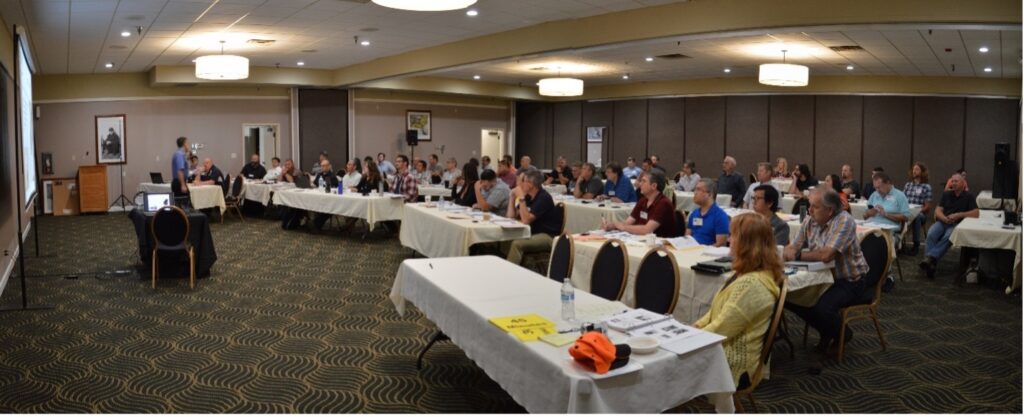Cutting-Edge Technology and Practical Solutions for Rural ITS Challenges: Highlights from the 19th Annual Western States Forum

The 19th Western States Rural Transportation Technology Implementers Forum (the Western States Forum or WSF), held in June in Yreka, California, focused on advancing Rural ITS and highlighted implementation of cutting-edge technology and projects. Tailored to engineers and technicians, the Forum was an opportunity to share in-depth, technical solutions to rural transportation challenges. Trust is […]
Public Lands Transportation Fellows Explore Federal Opportunities, Meet, and Present at TRB 2024

The Public Lands Transportation Fellows (PLTF) program is a collaboration between WTI, the National Park Service, and the US Fish & Wildlife Service, that provides outstanding graduate students with transportation-related fellowships and long-term job opportunities in federal land management agencies. WTI is particularly proud of this program, its participants, and their creativity and problem-solving acumen. […]
Professional Capacity Building for Communications Project Made Lasting Impact
Students from Caltrans Districts 6 and 10 work on a design for retrofitting an existing 15-year-old Class 1 TMC data center into a Class 3 data center as the final lab exercise in the Small Data Center Design, Structured Cabling, and Grounding training course. Photo: Leann Koon. Instructor Eric Pearson explains how to complete a […]
End of an Era as COATS Project Draws to a Close

After twenty-five years and eight phases, the California Oregon Advanced Transportation Systems (COATS) project drew to a close this year, marking an end to an era. Sharing roots with the founding of WTI, the COATS project has made a lasting impact on rural transportation in the western states and beyond. The COATS initiative was established to […]
WTI’s CATS program joins international EPIC-Network
We are pleased to announce that WTI’s Community-engaged and Transformational Scholarship (CATS) program is now a member of the Education Partnership for Innovation in Communities Network (Epic-N), a group of programs that match community-identified needs and projects with the resources, expertise, and human capital of university students. To become a member, programs must demonstrate that […]
